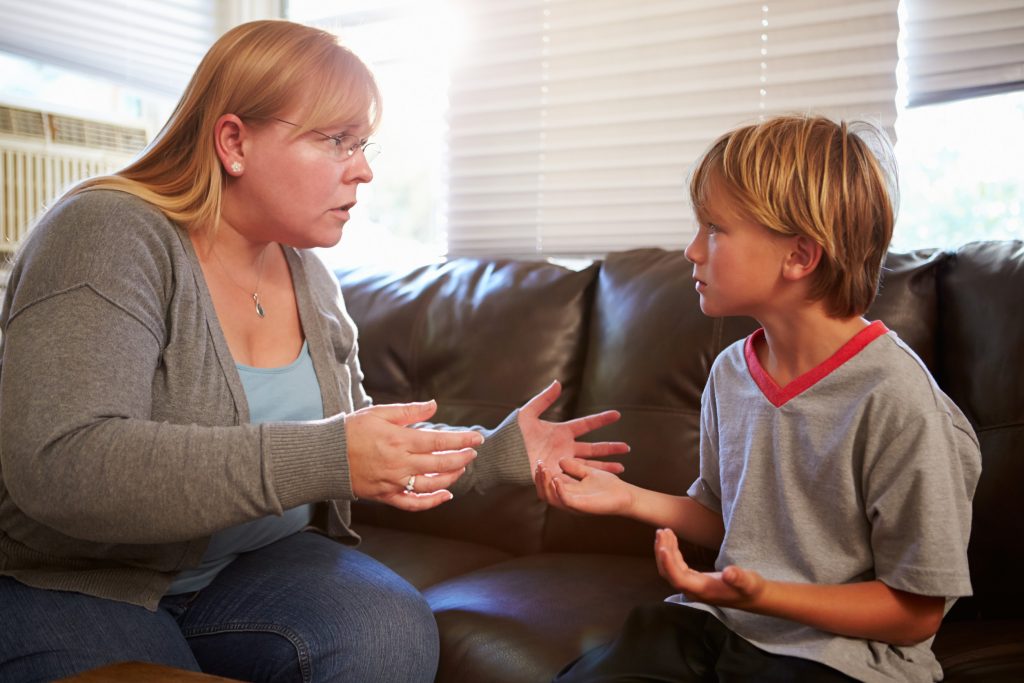
It’s jarring the first time your child looks you straight in the eye and tells a lie. Whether it’s denying they ate the last cookie—with chocolate still on their face—or making up a story to avoid consequences, it can feel like a breach of trust. But lying in childhood is more common than many parents realize, and it’s not always a sign of deep trouble. Kids lie for all kinds of reasons: to avoid punishment, to get what they want, or even to experiment with imagination and boundaries. What matters most is how you respond when your child starts lying.
1. Stay Calm and Avoid Overreacting
Your reaction sets the tone for how your child starts lying and how they’ll handle honesty moving forward. If they sense anger, shame, or fear, they’re more likely to lie again to avoid those reactions. Take a deep breath and focus on keeping your voice steady and your body language relaxed. Staying calm doesn’t mean letting it slide—it means addressing the behavior without creating a power struggle or emotional shutdown. Children need to feel safe enough to tell the truth, even when it’s hard.
2. Figure Out the “Why” Behind the Lie
Most kids aren’t lying just to be difficult—they’re trying to manage a situation in the only way they know how. Maybe they were afraid of getting in trouble, didn’t want to disappoint you, or just wanted a little more screen time. Understanding their motivation helps you respond in a way that addresses the root of the issue, not just the symptom. Ask open-ended questions like, “What made you say that?” or “Were you worried about what would happen if you told the truth?” This invites honesty without turning the moment into an interrogation—and helps you understand why your child starts lying.
3. Make Honesty the Easier Option
When the consequences of telling the truth feel terrifying, lying starts to seem like a better deal. If your child comes clean about something, try to separate the behavior from their courage in being honest. That might mean adjusting the consequence slightly or offering a thank you for telling the truth—even if what they did was wrong. This doesn’t mean letting them off the hook, but it shows that honesty is valued and respected. Kids are more likely to tell the truth when it feels safe and worthwhile, especially when a child starts lying to protect themselves.
4. Avoid Labeling Your Child as a Liar
It’s easy to say something like, “Why are you always lying?” when you’re frustrated, but those labels can stick. When a child hears they’re a liar, they may start to believe it’s part of who they are, not just something they did. Instead, focus on the action: “That wasn’t the truth” or “It’s important to be honest with each other.” Separating the behavior from their identity helps them see that honesty is a skill they can build—not something they’re inherently good or bad at. The way you talk to your child when your child starts lying can either motivate them or shame them into more dishonesty.
5. Teach Through Everyday Conversations
Honesty isn’t a one-time lesson—it’s something that gets built in daily moments. Share stories about times when being honest was hard, or point out examples in books, shows, and real life where someone chose truth over convenience. Reinforce the idea that telling the truth can be uncomfortable but also builds trust and respect. These small conversations plant seeds that grow into values over time. The more you normalize truth-telling, the less likely your child starts lying as their go-to response.
6. Watch Your Own Relationship with the Truth
Kids are incredibly observant, and they’re watching how you handle honesty too. If they hear you bend the truth to avoid an awkward invitation or tell a white lie on the phone, they may see lying as a useful tool. That doesn’t mean you have to be brutally honest all the time, but it does mean modeling integrity whenever possible. Admit when you make a mistake or correct yourself if you exaggerate. When a child starts lying, they need to see that adults wrestle with honesty too—and still choose it.
7. Focus on Rebuilding Trust, Not Just Punishment
When lying becomes a pattern, it can wear down your trust—but the goal is to rebuild, not punish endlessly. Let your child know that trust can be regained with honesty and consistency. Set clear expectations and offer chances for them to show you they’re trying to be truthful. Be patient, and acknowledge their efforts when they start telling the truth again. Rebuilding trust teaches them accountability and shows them relationships can recover when a child starts lying.
Honest Kids Are Made, Not Born
Every child lies at some point—it’s part of how they learn, test limits, and navigate consequences. What matters is that you treat lying as a teachable moment, not a personality flaw. When you create a home where truth is met with calm curiosity, realistic consequences, and room for growth, your child learns that honesty really is the best policy. They won’t always get it right the first time, but with your guidance, they’ll get there.
What have you found helpful when your child started lying? What didn’t work? Share your experience in the comments.
Read More:
8 Things Kids Do to Hide Their Bad Behavior from You
5 Signs Your Child Is Addicted to Their Tablet—and What to Do
The post Here’s What You Should Do When Your Child Starts Lying appeared first on Kids Ain't Cheap.







